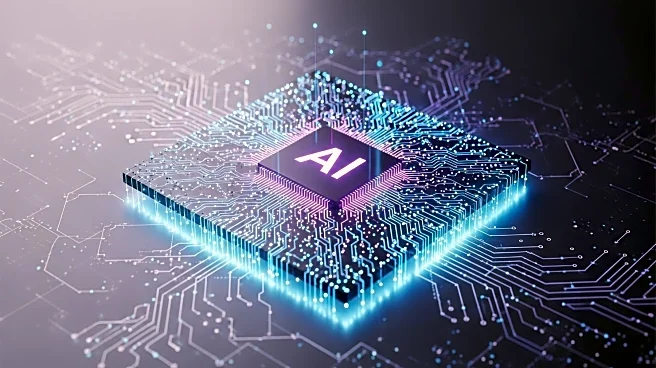What's Happening?
IBM Consulting's Neil Dhar and Creighton University's Regina Taylor recently participated in an interview at the New York Stock Exchange to discuss the transformative impact of AI on the workforce. Neil Dhar emphasized that businesses are moving beyond the experimentation phase with AI and are now focusing on how to leverage it for real-world business transformation. He highlighted the emerging role of the Chief Learning Officer (CLO) as crucial in managing AI interactions across all levels of management. Regina Taylor from Creighton University discussed how the institution is integrating AI into its curriculum to prepare students for the workforce. She stressed the importance of embracing AI as a tool and encouraged students to develop a growth mindset. The interview provided insights into educational strategies and workforce demands driven by AI's influence on early career roles.
Why It's Important?
The discussion underscores the significant impact AI is having on business operations and workforce dynamics. As AI technology rapidly evolves, companies are compelled to adapt and integrate these advancements to remain competitive. The role of the Chief Learning Officer is becoming increasingly vital, as it focuses on educating employees about AI's potential and managing its integration into business processes. This shift highlights the need for continuous learning and adaptation in the corporate sector. For educational institutions like Creighton University, incorporating AI into the curriculum is essential to equip students with the skills needed in a technology-driven job market. The emphasis on AI education reflects broader societal changes, where technological proficiency is becoming a critical component of career success.
What's Next?
As AI continues to advance, businesses and educational institutions are likely to further integrate AI into their operations and curricula. Companies may invest more in training programs to ensure their workforce is adept at using AI tools effectively. Educational institutions might expand their AI-related courses and programs to better prepare students for future careers. The role of the Chief Learning Officer could evolve to encompass broader responsibilities in guiding AI strategy and implementation. Stakeholders across industries will need to collaborate to address the skills gap and ensure that both current and future employees are equipped to handle AI-driven changes.
Beyond the Headlines
The integration of AI into business and education raises ethical and cultural considerations. As AI becomes more prevalent, issues such as data privacy, algorithmic bias, and the impact on employment must be addressed. Companies and educational institutions will need to navigate these challenges carefully to ensure responsible AI use. Additionally, the cultural shift towards embracing AI may require changes in organizational structures and mindsets, fostering an environment that supports innovation and adaptability.








